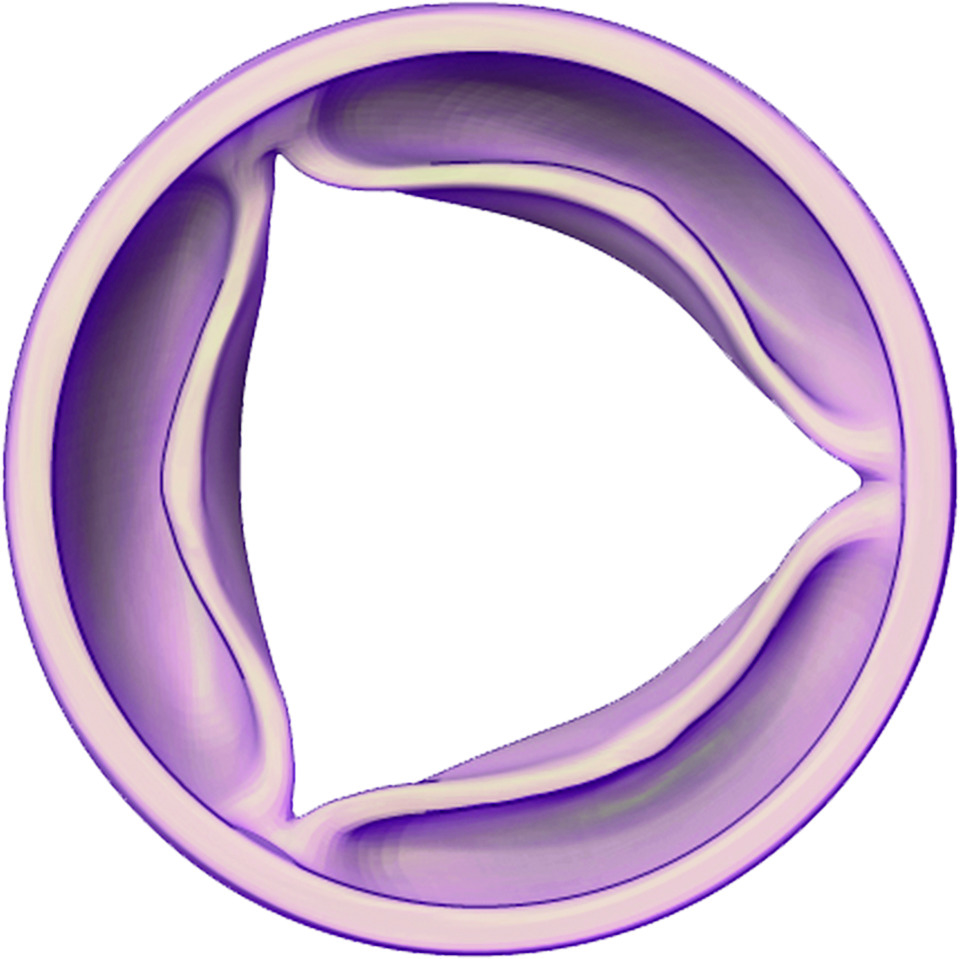Aortic Stenosis
Aortic stenosis is one of the most common and serious valve disease problems.
What is Aortic Stenosis?
Aortic stenosis is defined as a narrowing of the aortic valve opening. Aortic stenosis restricts the blood flow from the left ventricle to the aorta and may also affect the pressure in the left atrium.
The increased pressure load imposed by aortic stenosis results in compensatory hypertrophy of the left ventricle (LV). With time, the ventricle can no longer compensate, causing secondary LV cavity enlargement, reduced ejection fraction (EF) and decreased cardiac output. The result is an increase in exertional syncope, exertional angina and breathlessness over time.
The progression of Aortic Stenosis
The below diagram demonstrates how the severity of aortic stenosis progresses over time. Depicting how the calcification worsens on the aortic valve leaflets and further restricts blood flow through the aortic valve.

Healthy Aortic Valve Closed

Healthy Aortic Valve Open

Severely Stenosed Valve Closed

Severely Stenosed Valve Open
What are the causes of Aortic Stenosis?
- Calcium Build-up
In most elderly adults, aortic stenosis is caused by a build-up of calcium on the valve leaflets. Over time, this causes the leaflets to become stiff, reducing their ability to fully open and close. - Birth Defects
A normal aortic valve contains three leaflets. But sometimes people are born with an aortic valve that has one, two, or four leaflets. When defects are present, the aortic valve may leak, and this can cause valve problems. - Rheumatic Fever
Sometimes strep throat can lead to rheumatic fever which can cause scar tissue to form within the heart. When this happens, the aortic valve may not be able to open and close as it normally should.
What are the symptoms of Aortic Stenosis?
Some symptoms and red flags of Aortic Stenosis may include:
- Shortness of breath,
- Chest Pain,
- Fatigue (low energy),
- Light-headedness,
- Dizziness and or fainting,
- Difficulty while exercising,
- Swollen ankles and feet,
- Rapid or irregular heart beat.
What are the treatment options for Aortic Stenosis?
There are three main treatment options for aortic stenosis are:
- Surgical aortic valve replacement (SAVR),
- Transcatheter aortic valve implantation (TAVI), or
- Balloon valvuloplasty.
Speak to our Doctors at Newcastle Heart about treatment options that may benefit you.
